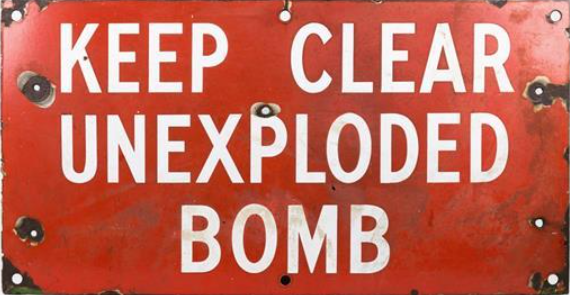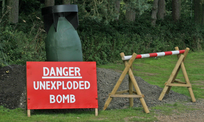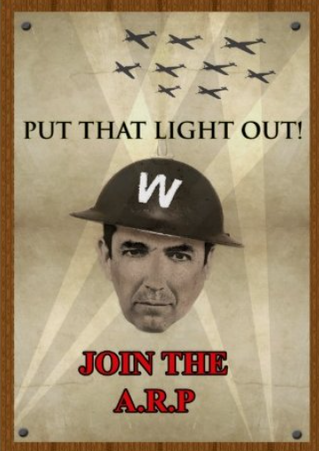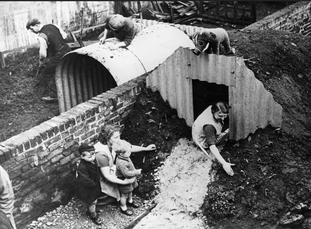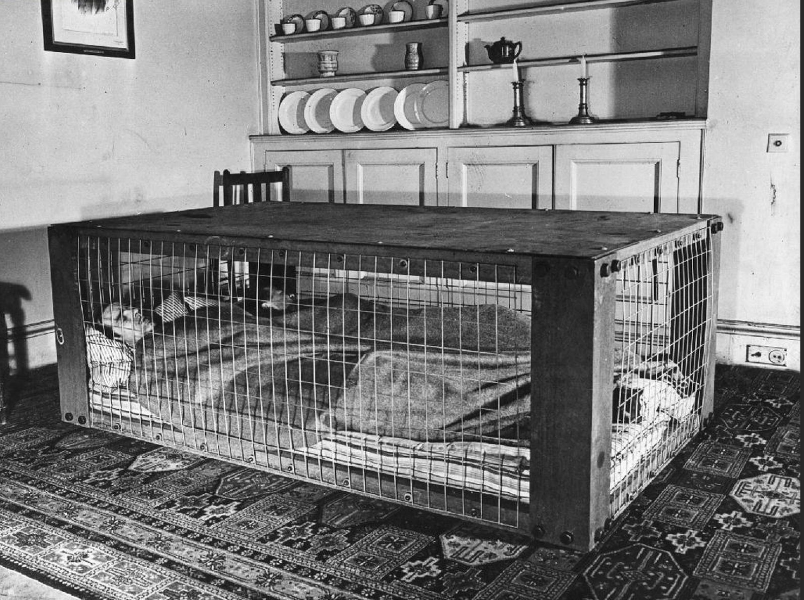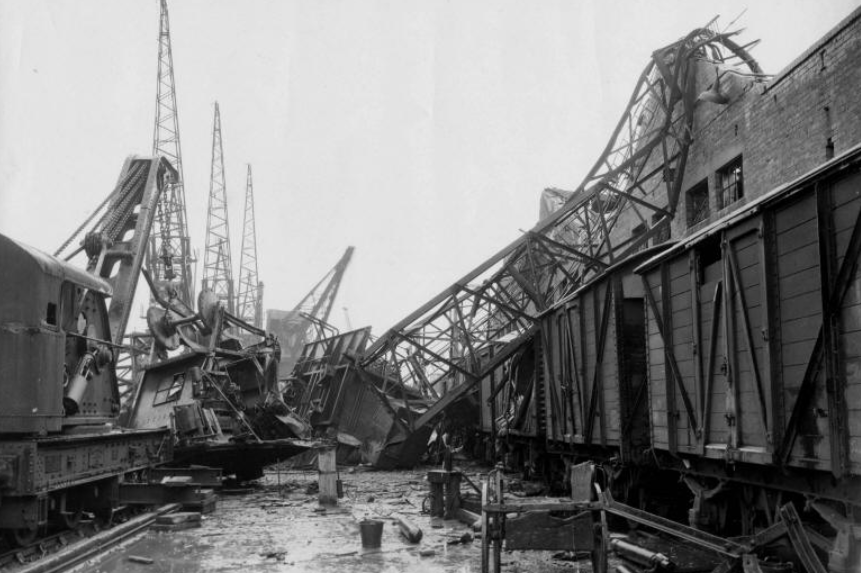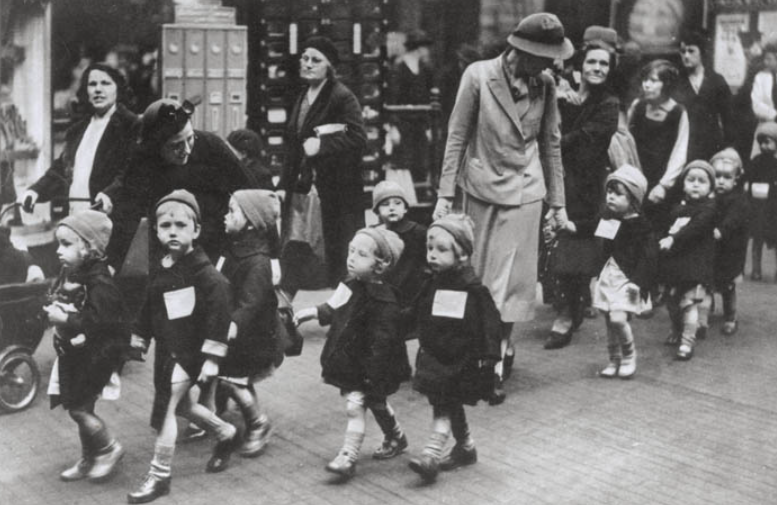WW2 WALES
|
After the fall of France, the nature of the war changed. Suddenly Britain was standing alone, and the enemy was just a few miles away across the English Channel.
The bombing of British towns and cities began, concentrated on London but extending across much of the country, with Cardiff in June 1940 becoming the first place in Wales to be attacked. In Wales, Cardiff and Swansea were subject to the most sustained attacks, Cardiff over the course of the war lost 33,000 houses which were either damaged, over 500 demolished and 355 civilians killed. Swansea suffered the most intense attack in Wales when a raid that lasted three nights in February 1941 destroying half the town's centre. The fires turned night into day and could be seen for miles, adding to the impact of the horror. Thirty-thousand bombs were dropped; 575 business premises burnt out; 282 houses demolished and 11,084 damaged. 227 people were killed, 37 of them under the age of 16. At the height of the Swansea blitz one woman, when asked where her husband was, replied, 'He is in the army, the coward'.
|
|
Those who had a garden would build Anderson Shelters to take refuge, in but for those with no gardens so fortunate they had to use the crowded public shelters.
In late 1940, Morrison Shelters were introduced, which were not much more than a steel table to hide under inside the house. Many people made a nightly trek to nearby rural areas, sleeping in tents, cars or even on the beach. |
|
The docks and industrial works of Cardiff and Swansea made them obvious targets but there were attacks elsewhere too. Ordinance factories, oil installations, mining towns and even rural communities were bombed by orchestrated attacks, lost planes or those just eager to lose their cargo before flying home. Even Caernarfonshire, which was near the flightpath of bombers heading to Liverpool, saw five deaths in bombing raids over the course of the war. In April 1941, 27 people lost their lives in a raid on Cwmparc in the Rhondda; six of them were children, including four evacuees. A miner recalled of seeing the coffins: 'That's when you realised there was a war on'.
|
|
Although after 1941, the raids on Wales became less frequent. People and evacuees grew more weary and fatalistic about the war, even ignoring sirens to stay in the house, pub or cinema.
There were still the effects of bombing to live with, not least the homelessness it caused. But it was nothing like the scale and intensity of the London Blitz people had endured. But the bombing in Wales still killed 984 people and seriously injured another 1,221. Moreover, the bombing ensured that the Second World War really was the 'People's War'. |
